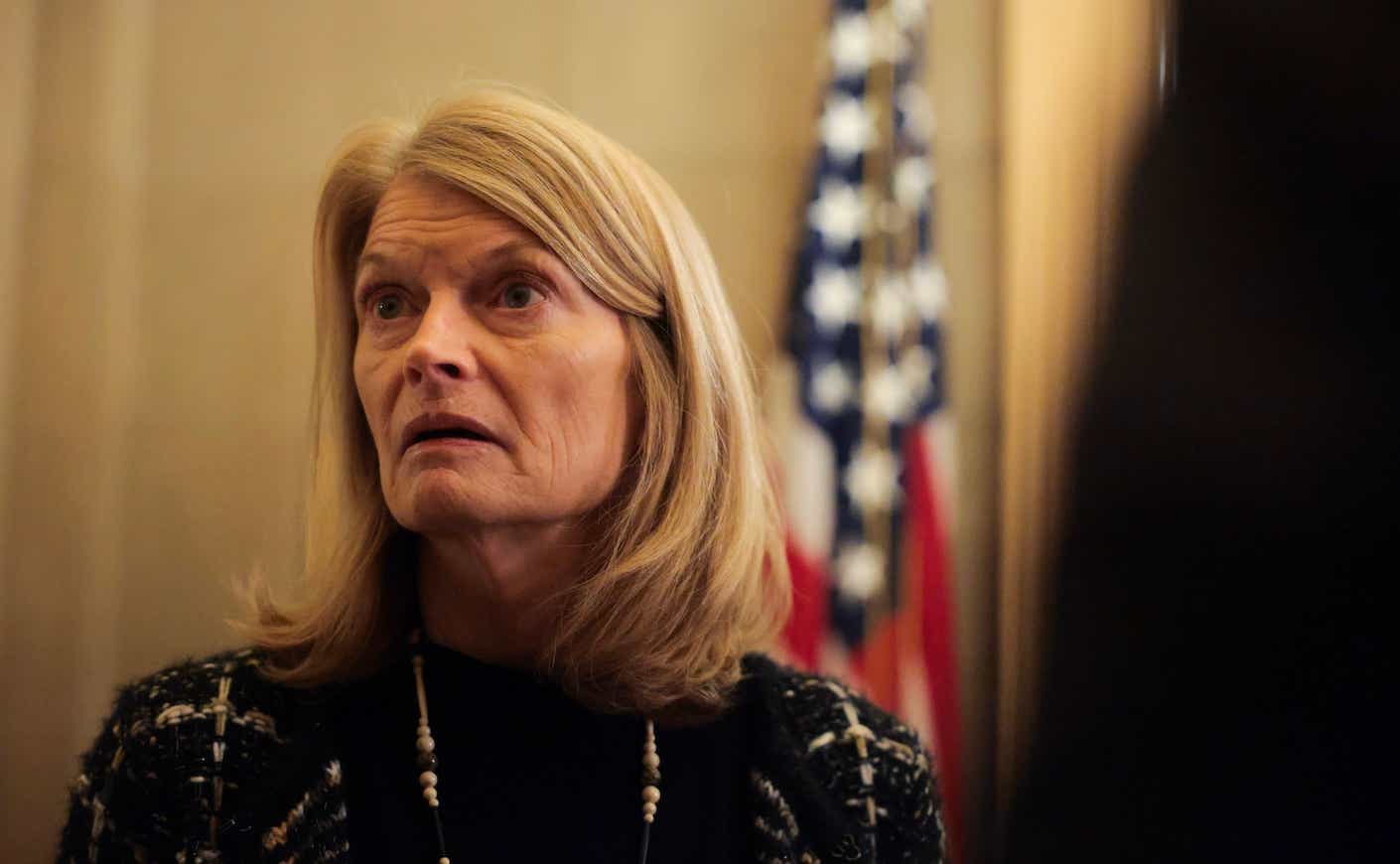As one of the few Republicans in Congress willing to publicly challenge President Trump, Alaska Sen. Lisa Murkowski is used to going her own way. But her most recent criticism didn’t come in a floor speech or a press release. It came quietly, at a meeting with nonprofit leaders in Alaska earlier this year — and it struck a chord.
Asked how to respond to the fear many are feeling in today’s political climate, Murkowski didn’t hesitate: “We are all afraid,” she said.
That moment — widely shared online — stood out not just for its bluntness, but for who said it: a senior Republican senator, someone who has weathered political backlash and survived a MAGA-fueled primary challenge. In a subsequent interview with Katie Couric on her Next Question podcast, Murkowski expanded on the remark.
“We're all experiencing the uncertainty of what's coming next,” she said. “Because there is no known path here.”
The “here,” as Murkowski described it, is the second Trump administration, which she sees as much more organized and aggressive than the first.
“You have a president who is much more keenly focused on what he wants to achieve,” she said. “I don't think that he had that targeted and directed focus the first time around, or if he did, he wasn’t quite sure how to implement it. I think it's different now.”
Murkowski also reflects on that shift in her new memoir, Far from Home: An Alaskan Senator Faces the Extreme Climate of Washington, D.C. In it, she writes bluntly that “it was evident that he could not have planned his own rise or engineered the transformation of the Supreme Court. He isn’t that smart.”
But this time, she believes, he knows exactly what he wants — and that shift is already having serious consequences. She described federal employees losing jobs or funding for political reasons, nonprofits stuck in limbo, and law firms targeted by executive order — not for misconduct, but for representing Jan. 6 defendants "the administration did not think should be defended."
“That, to me, is political retaliation that has economic consequences,” she said.
When asked if she believes Trump is more dangerous this time around, Murkowski pointed to Congress — and whether lawmakers are willing to step in.
“It could be dangerous if Congress — particularly the Republican majority in the House and Senate — decides that the ends justify the means and they’re comfortable with the goals,” she said. “If we’re willing to overlook how he’s using emergency powers, and choose not to hold him accountable, then I think yes.”
She’s not alone in her concerns. Legal experts and civil rights organizations have spent months warning of a growing erosion of democratic norms — from expanded emergency powers and mass deportation efforts to the use of federal forces in response to protests and the continued politicization of the courts.
Murkowski says the question she hears more than any other is: “Is our democracy still safe?” She doesn’t give a simple yes. Instead, she points to Congress’s failure to act — and says plainly, “We have not been the check.”
Whether that changes under Republican control of both chambers is unclear. According to Murkowski, the silence in her party isn’t so much about agreement — it’s about survival.
Some lawmakers support Trump’s agenda. Others don’t — but stay quiet, afraid of the political fallout. Murkowski has felt that pressure firsthand: After voting against Brett Kavanaugh’s Supreme Court confirmation and refusing to endorse Trump, he vowed to “find anyone with a pulse” to run against her. He did — and she still won. But she knows not everyone can survive that kind of test.
“Alaskans are very cognizant of some of the challenges that we face in our state when it comes to matters of domestic violence and sexual assault,” she told Katie. “I wish that I could tell you that we are turning the corner and eliminating this within our own society. We’re making headway, but we’re not doing enough. I think that there were concerns from many about whether or not Justice Kavanaugh would be able to understand the lived experiences of many women — not only in Alaska, but around the country.”
That same willingness to speak from experience — even when it’s politically risky — shapes how she views the broader health of American democracy. When asked whether she believes it can still be preserved, Murkowski didn’t offer certainty, but she did offer resolve.
“If we are trending toward a constitutional meltdown, we have the ability — as one of the three separate but equal branches of government — to weigh in and try to right things,” she said. “Is it possible? I don’t know. Some people have suggested it’s gone too far. I don’t know.”
“But I do know it’s worth fighting for. We have to. We don’t have any other choice,” she added.
To hear more of her unfiltered take on the GOP and where bipartisanship goes from here, check out our full interview.








